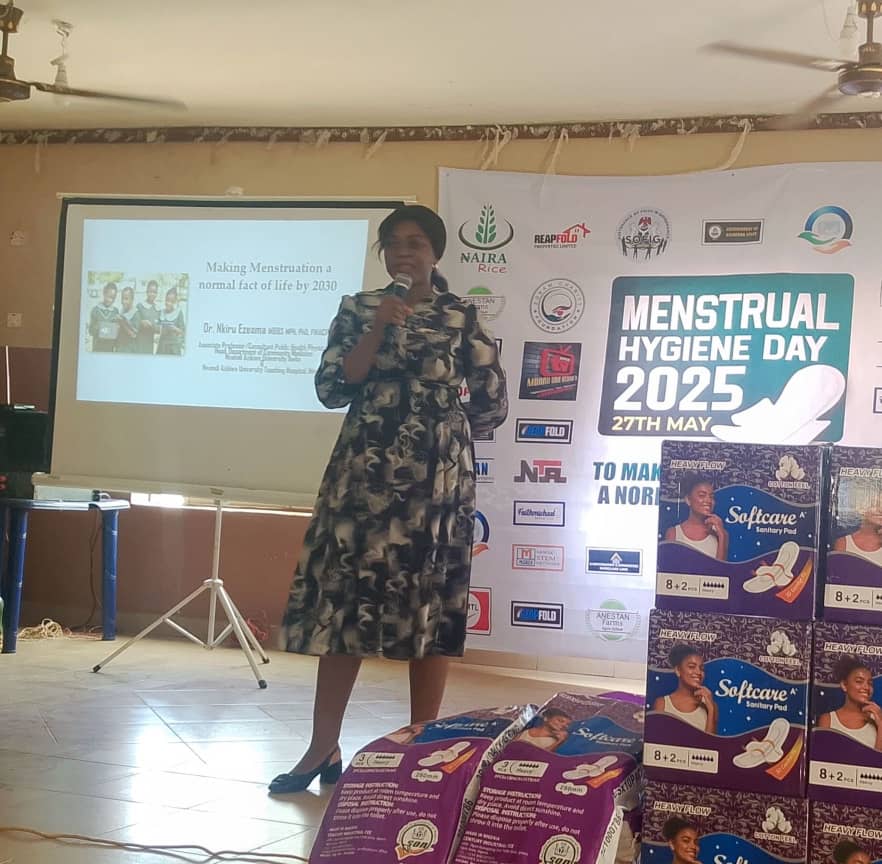By: Chioma Madonna Ndukwu
A public health expert, Dr. Nkiru Ezeama, has described menstruation as a normal biological process that signals good health and the onset of womanhood, not something to be hidden or treated with shame.
Speaking at a symposium held in Awka to mark Menstrual Hygiene Day, Ezeama addressed a group of schoolgirls during an event organised by the ZOBAM Charity Foundation in collaboration with Creative Ladies Global Resources.
Menstrual Hygiene Day, observed globally on May 28 each year, raises awareness about the challenges many women and girls face in managing menstruation. The theme for 2025 is “Making Menstruation a Normal Part of Life by 2030.”
Ezeama explained that menstruation begins at puberty and is a regular discharge of blood that affects over 1.8 billion women and girls worldwide. She emphasized that it should not be considered shameful, but rather understood as a natural and healthy part of life. She advised that any woman not menstruating as expected should seek medical attention.
“There is a need to normalize menstruation so that girls and women can speak openly about it, helping to dismantle the stigma, silence, and cultural taboos surrounding it,” she said.
Ezeama raised concern about menstrual health inequities, noting that over 500 million women and girls globally do not have access to safe, hygienic menstrual products. Many, she said, are forced to use unsafe alternatives that can lead to infections and long-term reproductive health problems.
She added that the cost of sanitary products — often between N1,000 and N2,000 per month — is unaffordable for many girls and women in Nigeria. This, she noted, contributes to school absenteeism, reduced participation in activities like sports, and poorer academic outcomes.
Ezeama called for government intervention through policies that make menstrual products affordable or free and the provision of water, toilets, and sanitation facilities in schools and public places. She also advocated for menstrual health education to be included in school curricula to help girls understand their bodies and health needs.
Also speaking at the event, Prof. Stella Okunna, Nigeria’s first female professor of Mass Communication, said menstruation should be seen as a source of pride, marking the beginning of womanhood and the potential for motherhood.
In her remarks, Mrs. Maureen Okolieukwu, founder of the ZOBAM Charity Foundation, explained that she launched the initiative in 2018 to train girls on how to make reusable menstrual products.
“As a mother, I understand the financial burden of buying sanitary pads every month. This programme helps girls save money while maintaining proper menstrual hygiene,” she said.
The event included a hands-on workshop on making reusable pads and the distribution of free sanitary products to participants.


